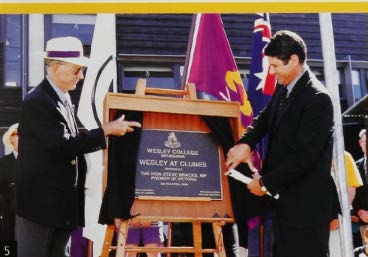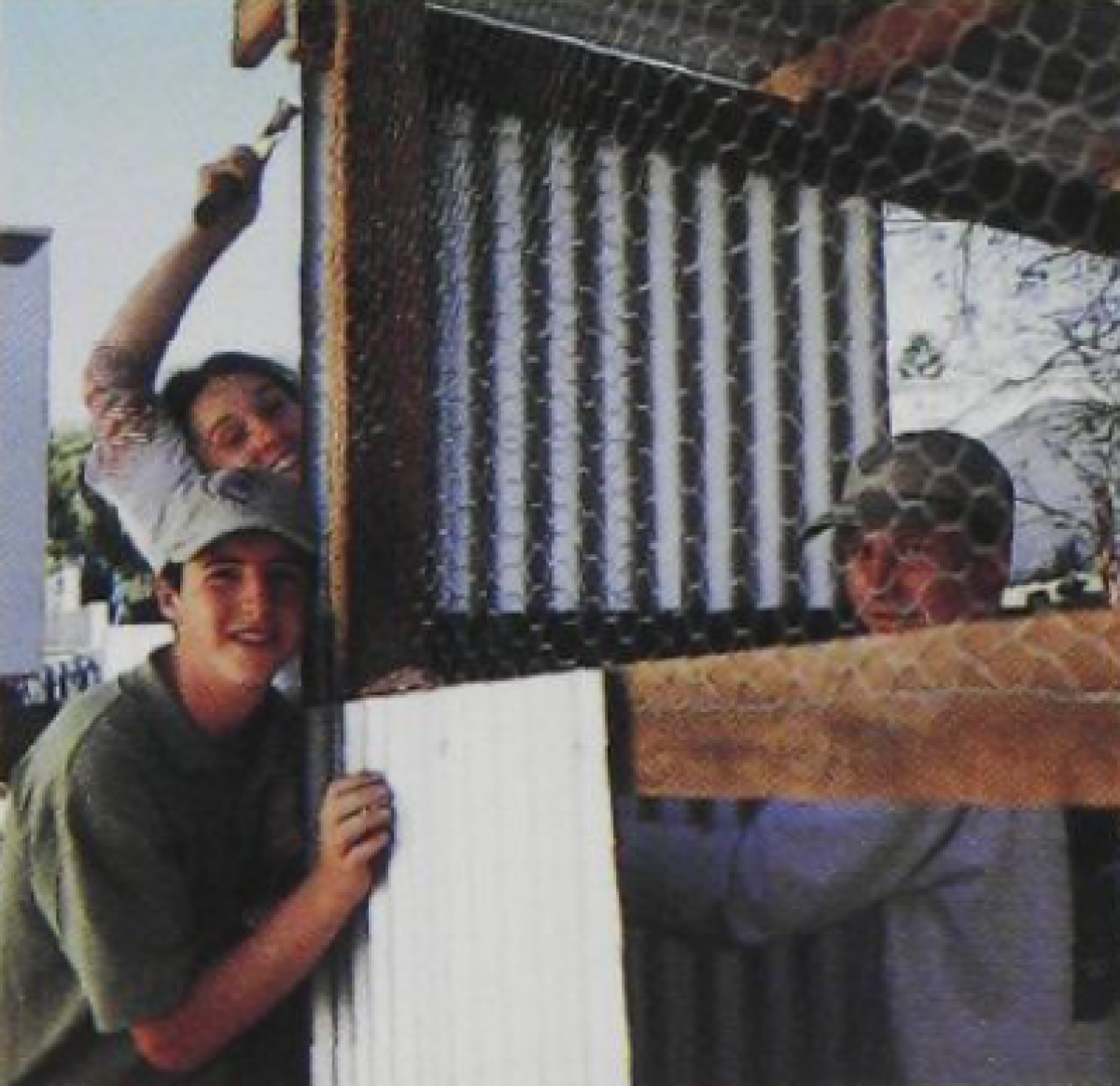With its emphasis on experiential learning, community engagement and interpersonal relationships, the Wesley at Clunes program has become a foundational experience in a Wesley College education. It’s now 25 years since the first excited Year 9 students arrived at Clunes, and this term, Group 100 took up residence. Paul Munn looks back over the journey from there to here.

The Clunes story began in the late 1990s when Principal David Loader conceived a novel, audacious plan for a Year 9 residential program somewhere in small town Victoria, and the College Council settled on the historic gold town of Clunes. When Wesley announced the plan for the $4.5m residential campus in early 1999, the news electrified the quiet rural community of about 800 souls.
 ‘It’s the best thing that’s happened to Clunes since the gold rush,’ said former councillor and Booktown co-founder, Tim Hayes.
‘It’s the best thing that’s happened to Clunes since the gold rush,’ said former councillor and Booktown co-founder, Tim Hayes.
The building phase swung into action, and just one short year later, in February 2000, the first group of Year 9 students arrived on campus for the inaugural eight week program.
Jacqui Kerr (OW2003), who became a Year 9 Wesley teacher herself not so many years later, remembered the excitement of being part of that first group: ‘It was sweltering hot on the first day and eight teenage girls were squealing and running up and down the stairs, nervously stealing glances at their new housemates from the other campuses.’
 Pioneer student Gabi Rowland (OW2003) - pictured here on the right with Kia Heinnen (OW2003), on the left - recalled she ‘was so excited and nervous’ she couldn’t sign the register. ‘It was the simple gesture of leaving a note on the bed: “Gabi Rowland, this is your bed. Enjoy!" as well as a Clunes cap and a sprig of lavender which made us feel welcome.’
Pioneer student Gabi Rowland (OW2003) - pictured here on the right with Kia Heinnen (OW2003), on the left - recalled she ‘was so excited and nervous’ she couldn’t sign the register. ‘It was the simple gesture of leaving a note on the bed: “Gabi Rowland, this is your bed. Enjoy!" as well as a Clunes cap and a sprig of lavender which made us feel welcome.’
The energy that came with being the pioneering group more than made up for the inevitable ‘unfinished’ nature of the campus in those first weeks. ‘Each day, something new would arrive or be done around the village which made the journey so exciting. We were able to watch the village grow. I wouldn’t have swapped it for any other term,’ said Gabi.
It’s fair to say that Clunes has never really been ‘finished’; ‘something new’ continues to arrive, from the growing relationship with Dja Dja Wurrung traditional owners, to the significant upgrade in facilities that occurred two years ago to ongoing adaptations of the curriculum.
The ‘learning to live with’ part of Wesley’s DNA has found full expression within the Clunes program, not just on campus, but within the wider local community. From the beginning, the vision was always for the program to be ‘of’ the community and part of the fabric of the town. Today, this takes many forms, including volunteering at community events such as Booktown and the Clunes Show, shopping at the local supermarket, greengrocer and butcher, and working with the local primary school.
‘Research suggests that Year 9 is the perfect age for experiential learning,’ says Head of Campus, Tara Clark. ‘We believe that creating unique and meaningful connections with the community helps students to identify their place in the world and see how they can make an impact.’
A key element in the curriculum, the Passion, Agency and Connection Project, acknowledges this, allowing students to choose a topic of personal interest and create a project that addresses a community need or issue, empowering them to become active and engaged global citizens.
Mia, who was at Clunes in Term 2 with Group 98, created a children’s picture book about how women in rural communities are affected by the gender pay gap. ‘I went to the local primary school and read my book to the Year 1s,’ said Mia. ‘It mostly focused on Malala, Florence Nightingale and Emma Watson, but with the stories simplified for younger kids.’
Madison from Group 97 built a model of an aircraft engine to demonstrate how sustainable aviation fuel can be a viable alternative to help make aviation a greener industry.
‘I learnt so much about the effects of such extreme carbon emissions from aircraft, and about constructing models and using different online programs such as Tinkercad,’ she said. ‘I loved the process of creating and exploring different ways to get my topic across.’
Another addition to the curriculum is the highly popular farm visit program. Issues around sustainability, ethics, conscious consumerism and connection with land take on real-world relevance as students get hands-on experience at local farms.
100 groups of Year 9 students across 25 years have now had their educational journey enriched by their term at Clunes, and all because a school community said 'yes' to their Principal’s inspired vision. As Principal Nick Evans reflects, ‘It was an astonishing innovation in education to put such a campus in the middle of a rural community, and what a success it has been.’
And so, to the next 25 years of the Wesley at Clunes story. What might it look like? Tara already has a few ideas. ‘I envisage expanding learning even further into the outdoors,’ she said. ‘I see us working alongside our Indigenous elders, local farmers and community groups to become an even more valued and integrated part of the Clunes rural community.’
However it develops, it’s clear the essentials of the experience will abide for the next 100 groups. Perhaps Nick Boyd-Cain (OW2003), also a member of Group 1, says it best as he reflects on adjusting to life in a new community that was still forming around him: ‘It really made the experience feel true to its intended purpose: taking us out of our comfort zones, challenging us, making us respond, and in doing so, building some skills that don't emerge in the course of a normal schooling experience.'
‘It left quite an indelible mark, one that I’m really grateful for.’
Paul Munn is the Editor of Lion and a regular features writer.




